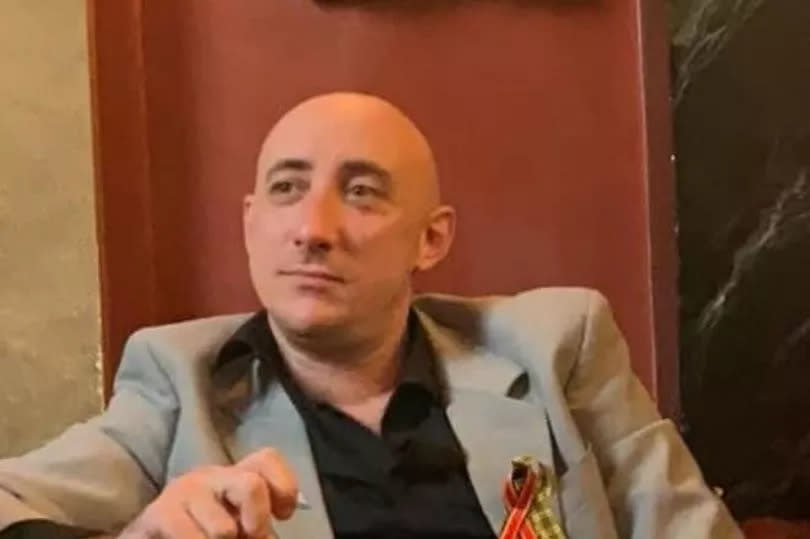Infected blood campaigners fear they're 'in limbo' and vow to continue fight for fair compensation for NHS scandal

Contaminated blood scandal campaigners have vowed to keep fighting to ensure compensation is fair - as some complain that they've been in "limbo" for a month.
A month on from Sir Brian Langstaff's landmark final report at the Infected Blood Inquiry - which highlighted how decades of wrongdoing from authorities who sought to "hide the truth" of the NHS's biggest ever treatment disaster - the new Infected Blood Compensation Authority has been established and begun holding engagement meetings with those infected and affected.
However Northumberland campaigner Sean Cavens has spoken of his frustration and anger at how it seems the work to bring in full compensation is not more developed. He also said it was alarming how as it stands it seemed as though the impact on people infected with hepatitis was under-appreciated in the illustrative compensation tariffs published.
The day after the final inquiry report was delivered - and after Prime Minister Rishi Sunak made an apology and promised to pay full compensation "whatever it costs" - Cabinet Office minister John Glen provided a range of detail on how compensation would work. This included confirming the establishment of the Infected Blood Compensation Authority and that its interim chair would be Sir Robert Francis.
Sir Robert had previously been asked by the Government to produce a study into what a "framework for compensation" would look like. He delivered this in 2022.
The scandal saw thousands of haemophiliacs given blood products tainted by viruses like HIV and hepatitis C beginning in the 1970s. Others were infected through transfusions and many passed on lethal viruses to their loved ones. Often described as the NHS's worst ever treatment disaster, upwards of 3,000 people have died and continue to do so on a weekly basis..
Sean - who was one of the youngest haemophiliacs to be infected during his childhood in Scotland - has hepatitis C and told ChronicleLive of the continual deleterious impact the wait and fight for appropriate compensation has had on his mental health.
He shared a letter he has written to IBCA in which he said: "I haven’t fought this long to be screwed over after being vindicated and the world now knows what the establishment did to us! I will continue to fight until this is sorted."
A major concern for those including Sean and Jesmond's Carol Grayson - whose husband Peter and brother-in-law Stephen both died of after contracting HIV through infected blood products - is that the monthly support payments that some of those infected and affected have received in the past are guaranteed. This has previously been promised in a number of ways, including under oath.
Sean said that many people in the infected blood community had relied on these payments for things such as mortgage applications - and that any lump sum payment of compensation would have to be additional rather than to replace this.
Sean added that campaigners were tried of repeating the story of their trauma - especially after Sir Brian Langstaff's 2000+ page report had so thoroughly vindicated them. He continued: "Support payments had been guaranteed for life, people got mortgages on back of those letters, and now all up in the air."
Sean said that he was struggling and "in limbo" and added: "At the end of the day Sir Brian was clear [in his report on the topic of the harm done to haemophiliacs]... It was unethical and we were used for research. That’s got a price and thus far it isn’t close."
Carol is one of those to have attended a meeting with figures from the IBCA and said her feedback had included that the process had been done the "wrong way around". She said she has also previously raised concerns about omissions in the "review" that Sir Robert previously conducted. She said it was vital that issues such as ensuring victims would continue to be able to access benefits should they move abroad and that the losses of potential future income due to the scandal were recognised.
IBCA confirmed that it had begun engagement and this was ongoing and said its helpline had answered more than 900 calls. At the end of May, Sir Robert Francis wrote in a "statement of intent" that: "It goes without saying that all those people who have been infected by HIV, Hepatitis B or C, as well as those who love and care for them, have been frustrated and distressed by the seemingly endless delays in achieving proper recognition of the wrongs done to them.
"I have seen the effects of that for myself on those in this community who helped me with preparing my Framework review in 2021. So the Authority will have to ensure that compensation is assessed and paid to those entitled to it as soon as possible."
He added: "I think it is important for the scheme within its limits to meet the concerns of each and every person within the infected and affected communities. I am committed to doing everything in my power to ensure that the Authority supports and pays those due compensation under the Infected Blood Compensation Scheme accurately, accessibly, securely and speedily."
He also said he would be driven by the values of integrity, compassion, candour, transparency, fairness, efficiency and propriety in the use of public funds.
The Government has previously said no-one will be "worse off" when compensation is paid - but even this wording has caused concern, as campaigners push for compensation which they feel begins to adequately address the wrongs that have been afflicted on them.

 Yahoo News
Yahoo News 
